Aquarium Audio
Hear Our Latest Aquacasts

Richard Feely
Ocean Acidification: Implications for West Coast Ecosystems
Dr. Richard Feely, who spoke on May 23, 2011, is a senior scientist at the National Oceanic and Atmospheric Administration Pacific Marine Environmental Laboratory in Seattle. He also holds an affiliate full professor faculty position at the University of Washington’s School of Oceanography. His major research areas are carbon cycling in the ocean and ocean acidification processes.

James Lindholm
Mission to Aquarius: A Journey to Inner Space
Dr. James Lindholm, who spoke at the Aquarium on April 27, 2011, is the James W. Rote Distinguished Professor of Marine Science and Policy and the founder and director of the Institute for Applied Marine Ecology at California State University, Monterey Bay. His research interests include the landscape ecology of fishes, the recovery of seafloor habitats following the cessation of fishing activity, and the design and efficacy of marine protected areas.

Dr. Milton Love
More Fun in the Little Yellow Submarine: 14 Years of Fish Research Around California Oil Platforms
Dr. Milton Love, who spoke at the Aquarium on June 7, 2011, is a research biologist at the Marine Science Institute at the University of California, Santa Barbara. He has conducted research on the marine fishes of California for over forty years. He has been a recreational angler since 1955 and was briefly a commercial fisherman in Santa Barbara.

Marc Shargel
Wonders of the Sea
Marc Shargel, who spoke at the Aquarium on June 28, 2011, has been diving along the California coast since 1978. He has been working as a professional marine life photographer for over twenty years. A longtime advocate for the adoption of marine reserves, Shargel served on the state's official advisory body, helping to select sites for marine protected areas along the southern central coast.

Janna Shackeroff
NOAA’s International Conservation Programs
Janna Shackeroff, who spoke at the Aquarium on July 13, 2011, is the international coordinator for the NOAA Coral Reef Conservation Program, based in Silver Spring, Maryland. A Seal Beach native, she earned her Ph.D. in marine ecology and anthropology at Duke University in 2008, then began working for NOAA at a marine protected area in Hawaii. In 2010 the journal "Science" recognized Shackeroff as one of four emerging leaders in marine conservation.

Ana Pitchon
Sea Hunters or Sea Farmers? Transitions in Modern Fisheries
Ana Pitchon is an assistant professor of anthropology at CSU Dominguez Hills. She specializes in marine human ecosystems and fisheries policy, and has held consultancies in the U.S. with NOAA. She is currently working in collaboration with NOAA on issues related to coastal resource dependency as part of the Magnuson-Stevens Fishery Conservation and Management Act National Standard 8 research program.

Sea Level Rise Special on KFWB News 980
Scientists estimate sea levels could rise more than three feet by the end of this century. In California, that would mean the flooding of San Francisco International Airport, the Ports of Los Angeles and Long Beach, and much of the commercial and residential property along the coast. Find out more about this pressing issue and how to prepare through this special report by KFWB featuring Anchor Ron Kilgore and sea level rise experts: Aquarium of the Pacific President Dr. Jerry R. Schubel, Dr. Reinhard E. Flick of the Scripps Institution of Oceanography, and Dr. Robert S. Young of Western Carolina University.

Naomi Oreskes
Merchants of Doubt
Naomi Oreskes is a professor of history and science studies at the University of California, San Diego. She is an author and editor of many published works, and her most recent deals with the science of climate change. Her 2004 essay "The Scientific Consensus on Climate Change" led to op-ed pieces in the Washington Post, the San Francisco Chronicle, and the Los Angeles Times and has been widely cited in the mass media, including National Public Radio and in the movie An Inconvenient Truth.

Our Oceans: Feast or Famine?
The importance of establishing Marine Protected Areas
Should we try to protect such a vast resource? Is it even possible, and what are some of the challenges we face?

Patricia Conrad
One Health Approach to Otters and the Ocean
Dr. Conrad is the professor of parasitology at the University of California, Davis, school of veterinary medicine. She is the recipient of several teaching and research awards and has written over 170 scientific publications. Involved with sea otter research since 1998, she directed the development of methods to detect, isolate, and unravel the life history of parasites that kill sea otters.

Restoring Our Giant Kelp Forests
How we can recover these declining habitats
Efforts in restoration are showing positive results for our giant kelp forests. Learn why and how it's done.

The Great Pacific Garbage Patch
Plastics Pile up in the North Pacific Gyre
Plastic garbage makes its way from our streets to the sea. Learn where many of these plastics end up, how they impact marine life, and what you can do to help.

Orrin H. Pilkey
Rising Seas and Shifting Shores: The Global Impact of Sea Level Rise
Orrin Pilkey is a research professor and James B. Duke Professor Emeritus at the Duke University Nicholas School of the Environment. He has received a number of awards including the Shepard medal for excellence in Marine Geology, The Priestly Award and public service awards from several geology societies. He has published 260 technical papers and edited and or written 40 books, the latest of which is The Rising Sea.

Breakwater: Alternative 2
The world’s largest breakwater is under scrutiny.
The second alternative set forth by the Reconnaissance Study removes the western third of the breakwater. This creates the possibility for waves to reach the shore and water quality improvements, but also the likelihood of the need for mitigation for the Port and the THUMS Islands.

Breakwater: Alternative 1
The world’s largest breakwater is under scrutiny.
The first alternative set forth by the Reconnaissance Study is proposed by long-time Long Beach resident and engineer Bud Johnson. This is the most cost effective alternative, but researchers think that it does not address the concerns for water quality, habitat improvements, and recreation.

